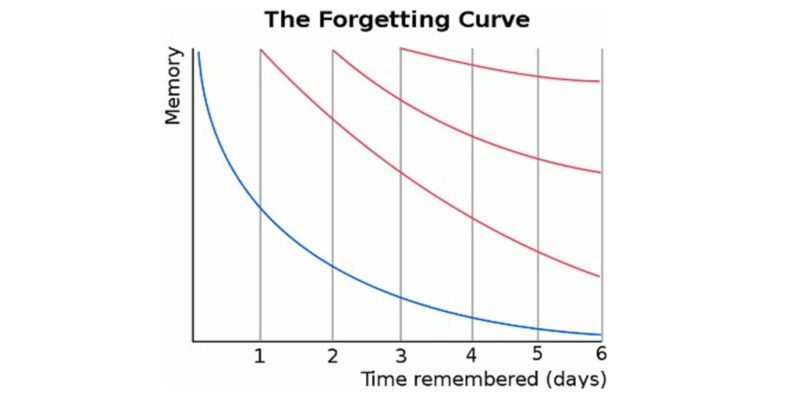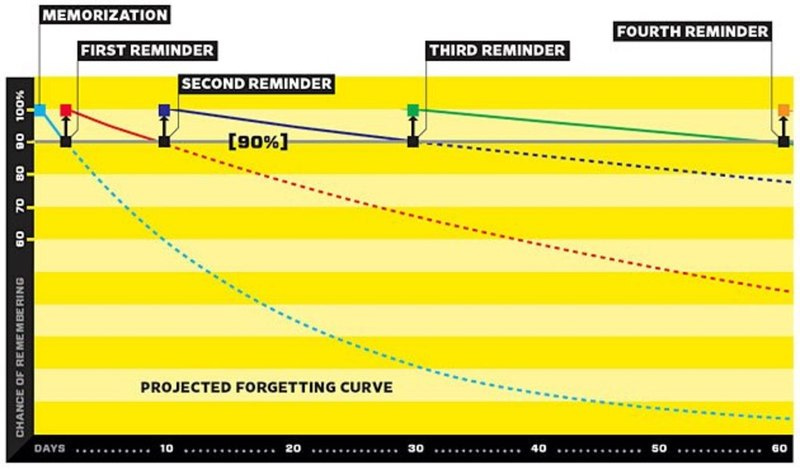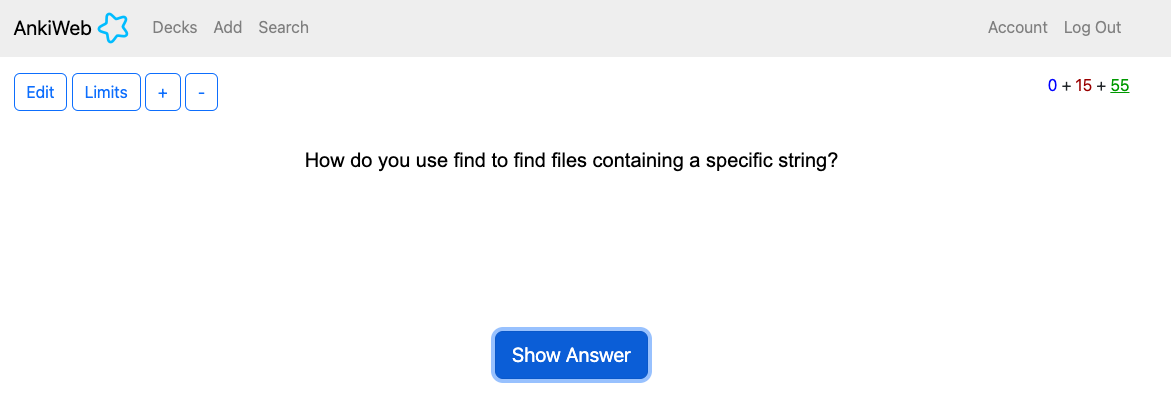How to remember things forever
Remember things that are hard to remember using spaced repetition
Imagine you occasionally need to locate a file containing a specific string in Linux. Each time, you find yourself looking up the exact command because it slips your memory:
find / -type f -exec grep -l "<string>" {} \;One tool I like to use for studying, learning new technologies, or keeping track of daily-use commands is Anki (I’m not affiliated with Anki in any way). With Anki, you can remember things like this for as long as you need (for the rest of your life! If you want). In the long run, remembering hundreds of small pieces of information you use occasionally can save you time spent searching, giving you more energy to focus on bigger tasks.
What’s Anki?
Anki is a program that lets you create flashcards to review daily. If you get an answer wrong, the flashcard will appear more often, helping reinforce what you need to remember.
For example, we can create a flashcard for the command above like this:
You then try to recall the answer before revealing it. Depending on whether you remembered it correctly (which you judge for yourself), the card will reappear later at a set interval based on your performance:
So why is this good?
Anki uses a technique called spaced repetition, which helps you retain information long-term in a highly efficient way. If you’re curious about how it works in more detail, I recommend reading these two articles (this one, and this one).
Essentially, this means that the more frequently you recall something, the less likely you are to forget it. Take a look at the forgetting curve below. If you learn something once, you’re likely to forget it after about six days. However, if you review it the day after learning it, the chances of forgetting it after six days are reduced. In short, the more often you reinforce something, the stronger your memory of it becomes.

However, let’s say you need to remember something for the rest of your life. You don’t need to review it every day (that would take up way too much time!). Instead, you can optimize the intervals at which you recall the information. This is where spaced repetition comes in. It adjusts the review frequency based on how well you remember, ensuring that you only revisit information when necessary to keep it fresh in your mind.

Research has been done to determine the most effective intervals for memory retention, and Anki uses one of these methods. If you’re interested in learning more, check out the two articles I mentioned earlier (this one, and this one).
When to use this?
I personally use this when I’m:
Preparing for a certification and need to memorize specific commands
Learning a new subject/technology and want to quickly internalize the terminology associated with it.
Using certain tools almost daily but end up spending too much time Googling the same things repeatedly.
But you can use Anki for anything! Whether you need to remember names, prices, or phone numbers, simply create the cards, spend 5-10 minutes a day practicing, and trust the spaced repetition process to transform your long-term memory into a superpower.
Are you going to use this? Are you already using something like this? Let me know. I’m curious!
* I’m not affiliated with Anki and they’re not paying me.



